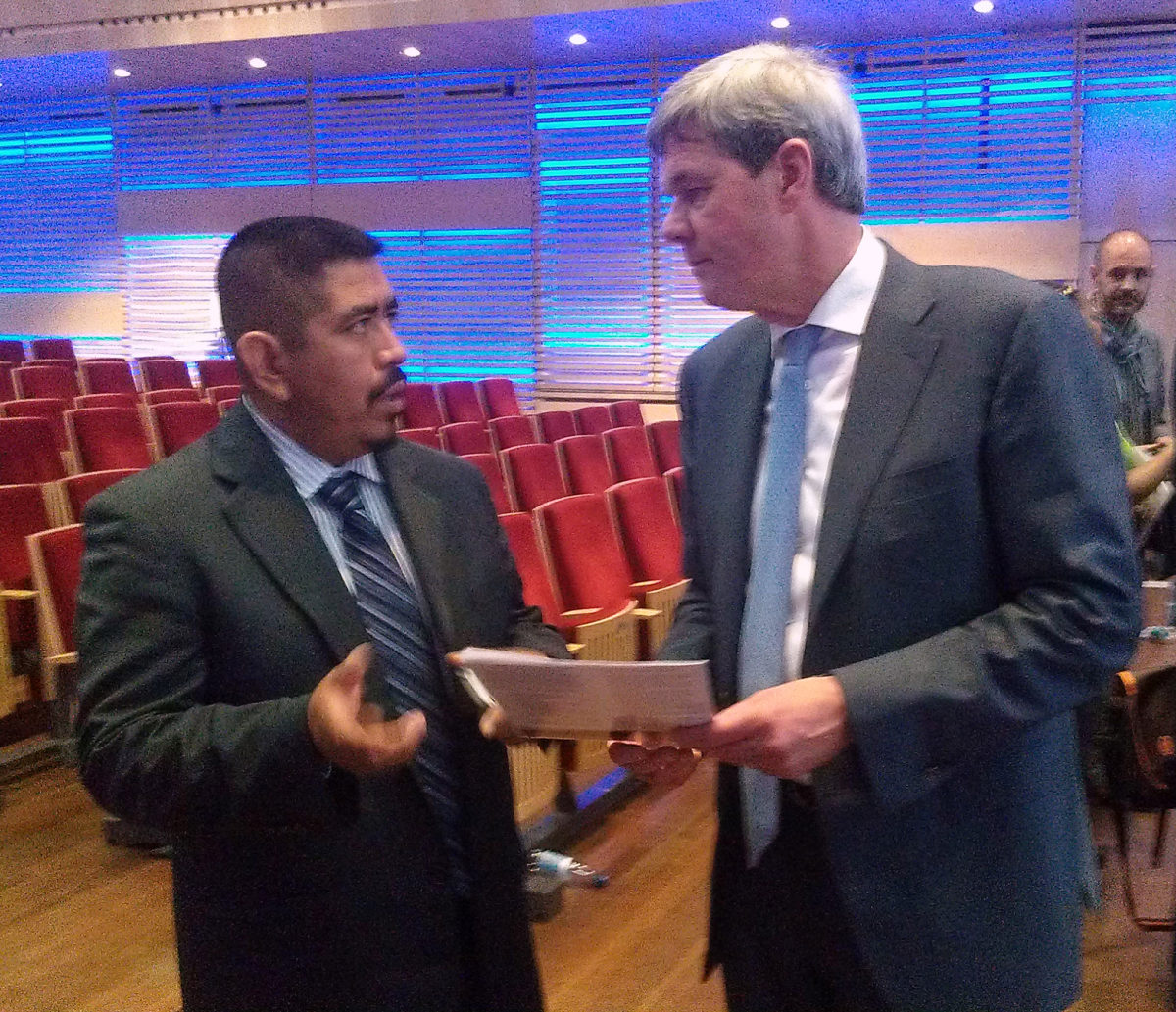CIW Demands Dutch Giant Corporation Respect Rights of Farmworkers

On the heels of a powerful march across Florida focused on the Publix supermarket chain, NESRI and the Coalition of Immokalee Workers traveled to the Netherlands to press large food purchaser Royal Ahold, parent company of Giant Food and Stop and Shop, to join the Fair Food Program and guarantee human rights of farmworkers. Award winning human rights organizer, Lucas Benitez, along with NESRI’s Work with Dignity Program attended Royal Ahold’s annual shareholder meeting where Mr. Benitez asked:
[Given] there is a history of labor rights violations in Florida's fields and at least two forced labor investigations are currently being conducted, are you confident enough in your self-monitoring to say before your shareholders right now, that these do not involve growers in Ahold's supply chain? …and knowing that the Fair Food Program is based on worker-to-worker education, immediate investigations into every report of abuse and thorough audits and monitoring in the fields, why would Ahold and its shareholders NOT want to be part of the highest standards of ethics there are?
Earlier this year, the UN Global Compact featured the Fair Food Program as a model of supply chain sustainability; just last week, the White House called the Fair Food Program "one of the most successful and innovative programs" in the world today in the fight to prevent modern-day slavery. Eleven major food purchasers, including Whole Foods and Trader Joe’s, have joined the program, and ninety percent of Florida tomato growers are participating.
The Fair Food Program is the only worker-led, comprehensive, verifiable and sustainable system of human rights protection in U.S. agriculture. It represents a new day in Florida’s fields and has already transformed the conditions for work for tens of thousands of tomato pickers.
Ahold's response to Mr. Benitez was handled by Lodewijk Hijmans van den Bergh, Chief Coporate Governance Counsel, who indicated that Ahold has followed its own standards of engagement on the issue, by meeting with the CIW, suspending purchases from Florida tomato growers in 2010, and then resuming purchases and meeting with tomato growers in 2011 and 2013 to ensure compliance with Ahold's internal standards. "We have no reason to believe they are not in compliance," said Higmans van den Bergh. "Should there be evidence they are not, we will take action. As far as your second point, which involves paying workers a penny per pound, wages are matters of employees and suppliers and we don't want to interfere. We disagree on this point, and won't agree with the penny per pound initiative, and we will not participate in the program."
Knowing that CIW had come to Amsterdam and was meeting with investors in Ahold, the company released a statement about the organization and the Fair Food Program days before the Annual meeting. [It is attached below.]
Ahold's suspension of tomato purchases from Florida growers in 2010 occurred during the off-season, and none of its alleged visits to growers in 2011 and 2013 involved conversations with workers. Ahold indicates its standards and the Fair Food Program's (FFP) Code of Conduct are "alligned," but has not shared its standards publicly. While it suggests all its suppliers are members of the Florida Tomato Exchange, which is indeed part of the FFP program, this cannot be confirmed. Even if true, Ahold remains an unrepentant "free rider" in the program, which legally intetlinks food retailers, growers and workers together in a network of sustainability. Ahold also maintains a market for growers who do not currently participate in the FFP, and for those whose conduct warrants FFP sanction, which can include suspension or termination from the program.
Please follow the Fair Food Campaign and join the consumer movement to end human rights violations in the fields!
